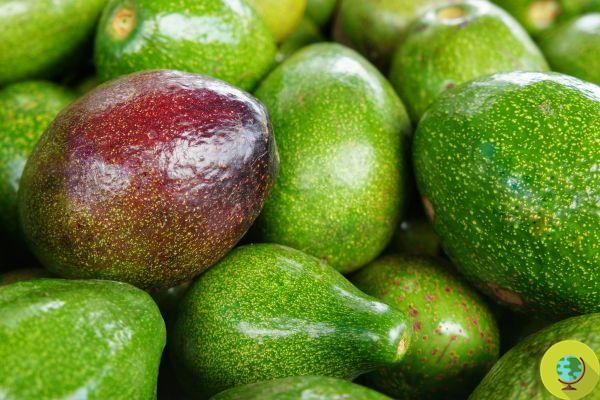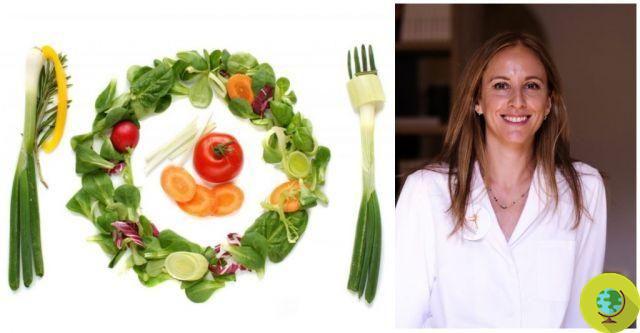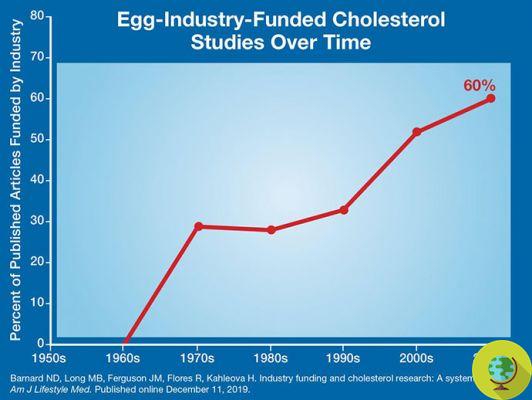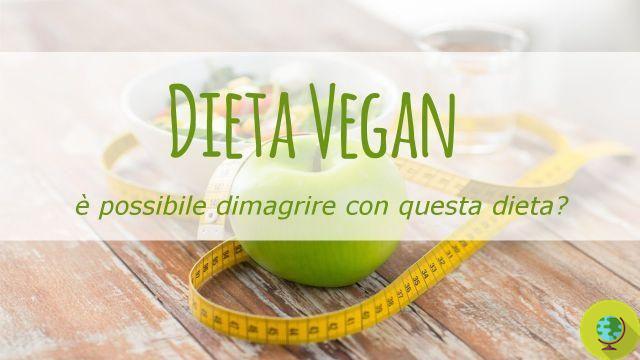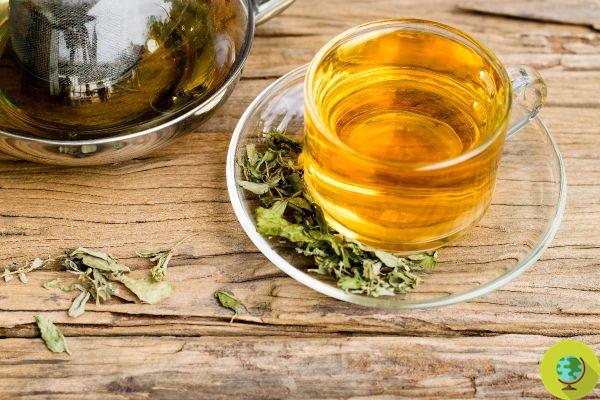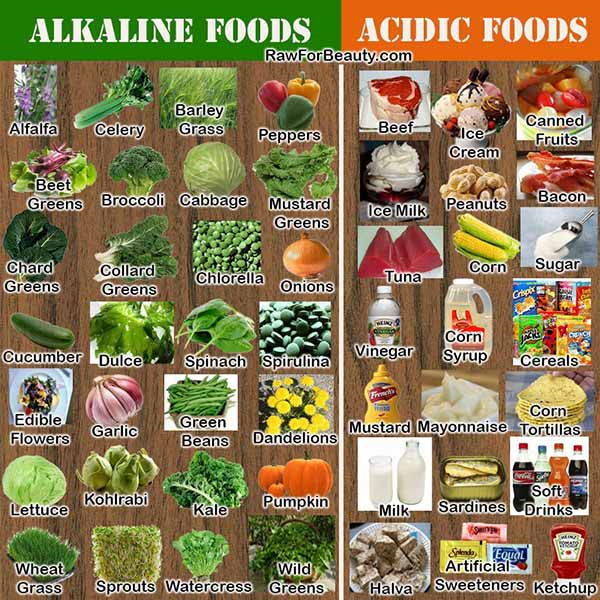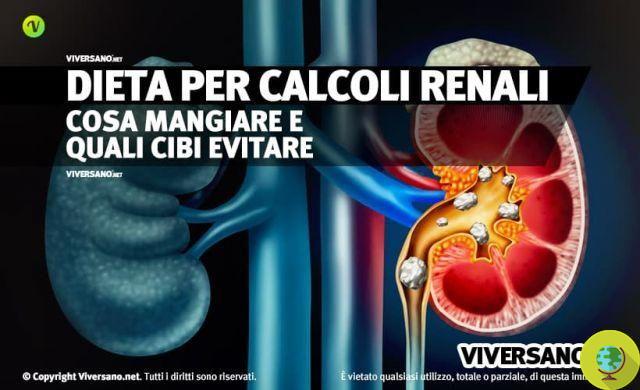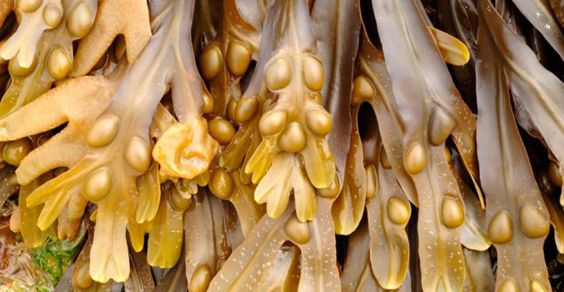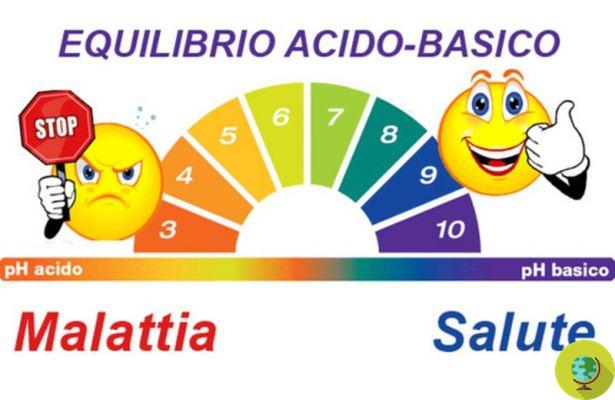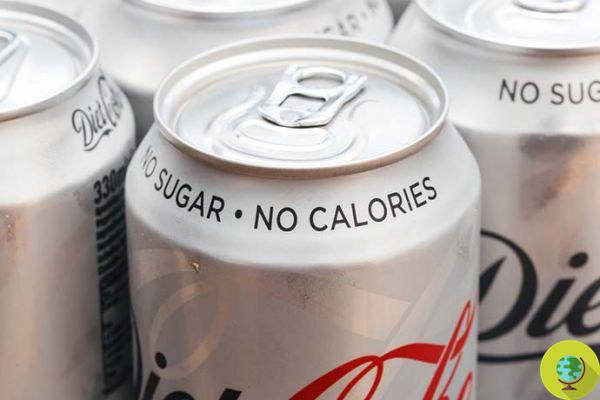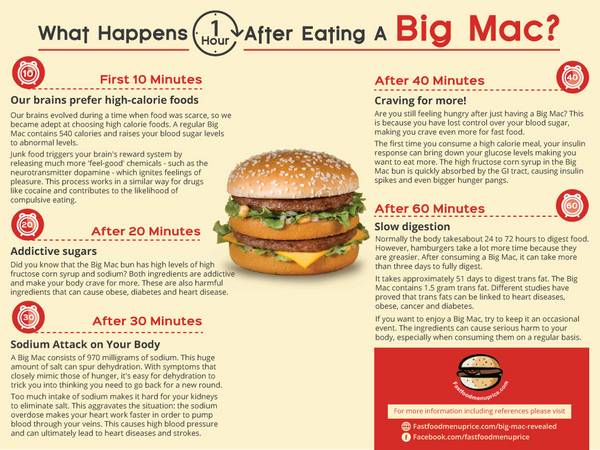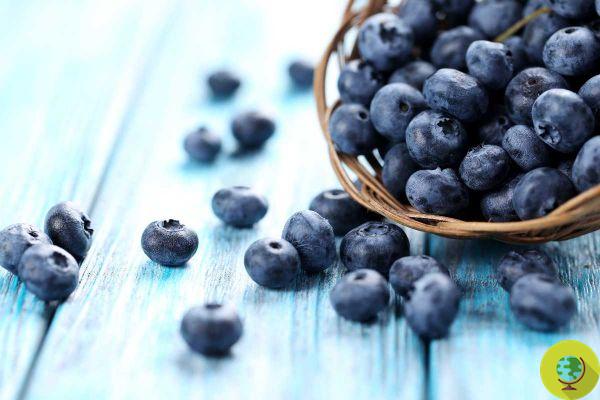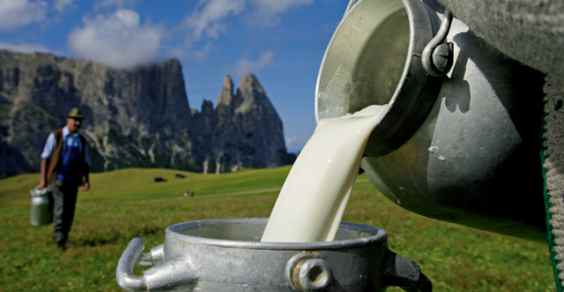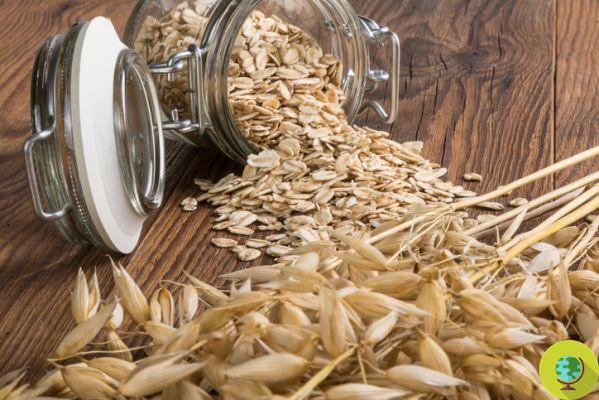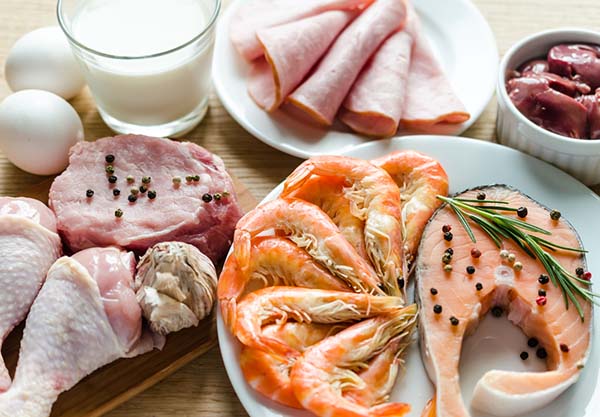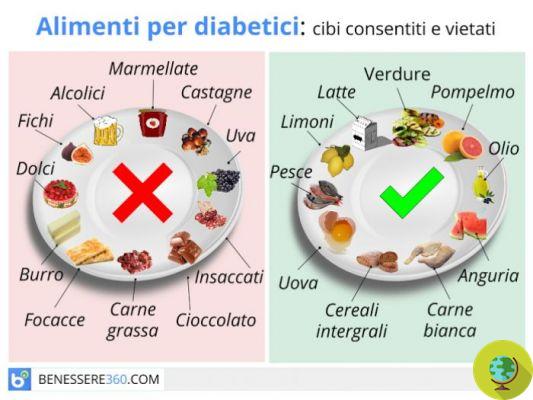To the detriment of the cliché that dried fruit or oily fruit is the enemy of the diet, these small and tasty foods should be consumed more often, albeit in moderation. The properties of dried fruit are in fact extraordinary even in the face of important calories.
To the detriment of the cliché that wants the dried fruit or oily fruit enemy of the diet, these small and tasty foods should be eaten more often, albeit in moderation. The properties of dried fruit are in fact extraordinary even in the face of important calories.
By the name of dried fruit we commonly call walnuts, hazelnuts and almonds, etc. even if it would be more correct to call it oily fruit since the real dried fruit is actually the one that has been dried with special tools or in the sun by eliminating all the water, including for example dates, plums, apricots, etc.
It is recommended to consume dried fruit as a mid-morning or mid-afternoon snack that can act as a "hunger breaker". The recommended quantity it can vary according to the characteristics and activities carried out by the person: it is clear that a sportsman will be able to eat more than a person who works at the computer. Generally, however, the quantity is between 15 and 30 grams depending on the type of dried fruit.
Over the years, more and more scientific research has focused on evaluating beneficial effects of dried fruit on our body to be attributed in particular to the important nutrients contained in the different variants. So let's discover the main properties that a regular but moderate consumption of dried fruit offers.
Index
PROPERTIES OF DRIED FRUITS
Depending on the type, characteristics and properties change. So let's discover them individually:
walnuts
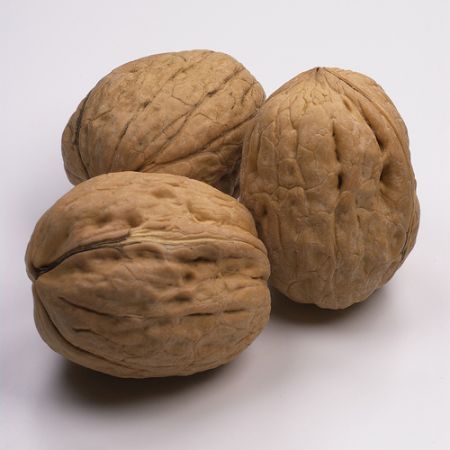
Walnuts are a good source of Omega 3, they help protect against heart disease and a wide range of inflammatory and non-inflammatory diseases. This dried fruit, by the way, contains ellagic acid, an antioxidant beneficial to the immune system which also appears to have anti-carcinogenic properties. Also present is melatonin, a substance produced by the pineal gland that helps regulate the sleep-wake rhythm and has antioxidant properties. Finally, walnuts are valuable sources of mineral salts such as magnesium, calcium, potassium, etc. and vitamins, especially vitamin E.
Read also: NUTS AND PEANUTS DO WELL: ALL THE STUDIES THAT PROVE IT
Peanuts
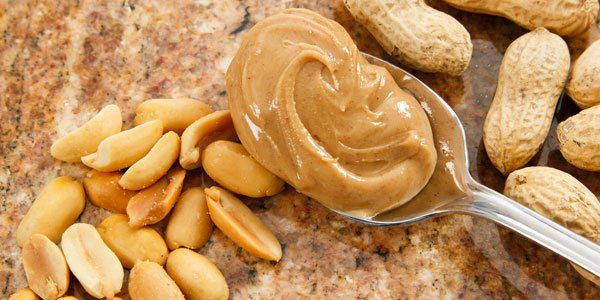
Peanuts are a good one source of vegetable protein (in fact, they contain many amino acids) but they also do not fail to supply our body mineral salts (in particular magnesium, potassium, zinc, phosphorus, manganese and copper), vitamins (especially vitamin E), good fibers and fats (despite being rich in fats, the absence of cholesterol is highlighted). It is also a particularly rich food antioxidants (polyphenols), which reduce the risk of getting sick from various pathologies. All these properties are certainly undermined by the consumption of salted peanuts. Excessive use of these products increases the likelihood of developing hypertension and consequently increases the cardiovascular risk.
Read also: PEANUTS: PROPERTIES, CALORIES AND CONTRAINDICATIONS
almonds

Almonds are an excellent source of monounsaturated proteins and fats. They offer several advantages: they help stabilize blood sugars avoiding glycemic peaks, therefore excellent for the prevention of diseases such as diabetes and to keep the sense of hunger at bay. Rich in antioxidants, they are also a precious source of calcium, magnesium and phosphorus and for this they contribute to good bone health. Also useful for controlling cholesterol, it has been shown that those who regularly eat almonds have lower cholesterol levels.
Read also: WHAT HAPPENS TO THE BODY BY EATING 30 GRAMS OF ALMONDS PER DAY
Pistachios
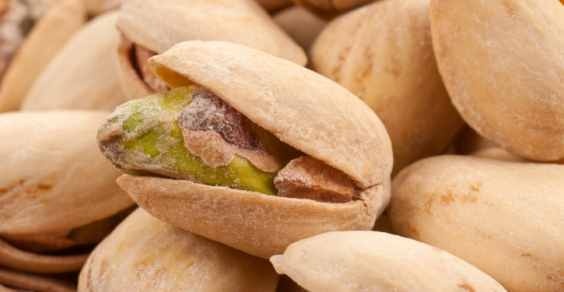
Pistachios are particularly useful in cases of high cholesterol since help reduce bad cholesterol values (LDL) while simultaneously increasing those of good cholesterol (HDL). Also in this case the fats present in these small fruits are particularly beneficial and in addition to making the pistachios as well as tasty also very healthy contributes the presence of mineral salts (including iron), vitamins, especially of groups B and E, and antioxidants that fight free radicals. Attention only to the fact that often, those commonly found, are very salty, therefore not recommended for those suffering from hypertension.
Read also: PISTACHIOS: ALL THE HEALTH BENEFITS
Hazelnuts
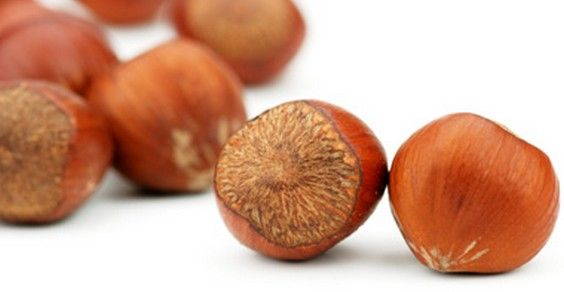
Along with almonds, hazelnuts are among the richest fruits Vitamin E. They also contain phytosterols, substances useful for the prevention of heart and circulatory diseases. They contain good fats, capable of lowering LDL cholesterol levels. They are very rich in B vitamins, natural antioxidants, mineral salts including calcium, iron, copper, manganese and, by the way, are easily digested. The content of fibers of hazelnuts ensures the health of the digestive system, facilitating intestinal transit and the elimination of toxins.
Read also: HAZELNUT: properties AND HEALTH BENEFITS
Pine nuts
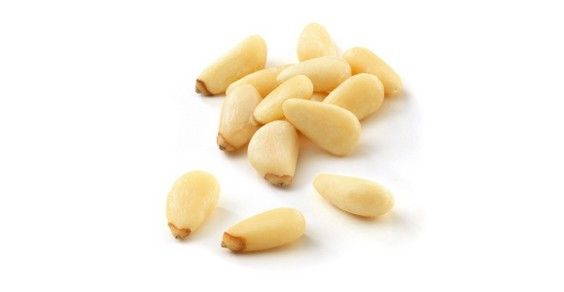
Pine nuts are rich in protein and vegetable fiber. They are a good source of zinc, vitamin B2 and potassium. They also contain calcium, magnesium, vitamin E and iron. They contribute to maintaining the health of the organism, are endowed with properties antioxidants and help to protect the cardiovascular system. They are able to give energy without increasing the sense of hunger e improve intestinal regularity.
Read also: PINE NUTS: PROPERTIES AND A THOUSAND BENEFITS FOR HEALTH
Cashews
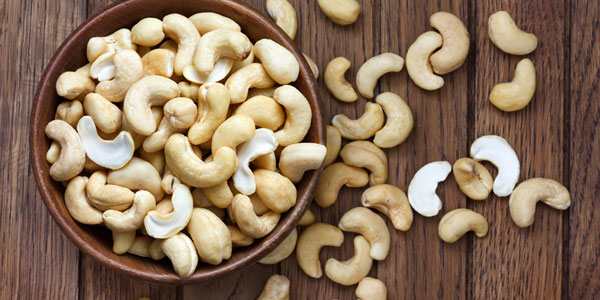
Cashews contain a large amount of oleic acid, the same that is found in olive oil and which is so useful for heart health. I am also rich in magnesium and offer a good amount of B vitamins, essential amino acids and minerals such as potassium, phosphorus, sodium, zinc, copper, iron and selenium. All this richness of nutrients combined with the presence of an important precursor of serotonin, tryptophan (100 grams of cashews contain about 400mg) means, among other things, that these fruits can act in a completely natural way on mood. Recent research has called them gods real natural antidepressants. They are also rich in antioxidants and have beneficial effects against type 2 diabetes. Compared to the other types of nuts, cashews have a lower fat content and do not contain cholesterol. They are therefore a healthy snack and also suitable for those who want to lose weight (provided of course not to overdo the consumption).
Read also: CASHEWS: BENEFITS, CALORIES AND CONTRAINDICATIONS
Brazil nuts
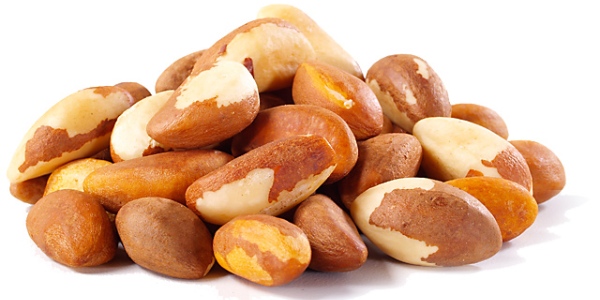
Brazil nuts contain a lot vitamin E but above all Selenium, mineral with strong antioxidant qualities and useful for various functions of our body. Other minerals present in this dried fruit include iron, zinc, magnesium, calcium and potassium. We find then B vitamins and good fats in particular palmitoleic acid and oleic acid, very useful for lowering LDL (bad) cholesterol. Brazil nuts are also a good source of protein.
Read also: BRAZILIAN WALNUTS: ALL THE PROPERTIES, BENEFITS AND WHERE TO FIND AMAZON NUTS
Calorie
Dried fruit or oil fruit has for a long time enjoyed a bad reputation as it is considered rich in fat and calories and therefore the enemy of a healthy weight. In reality, if well taken (obviously without exaggerating) this fruit, which includes many variations, is a truly precious complement to our daily diet.
It is true that dried fruit contains fat, but these are the so-called good fats including those called "essential" as our body is unable to synthesize them by itself but must inevitably take them through food.
We see the calories of the main types of dried fruit:
Walnuts: about 650 calories per 100 grams
Hazelnuts: about 620 calories per 100 grams
Pine nuts: about 670 calories per 100 grams
Almonds: about 600 calories per 100 grams
Pistachios: about 560 calories per 100 grams
Cashew nuts: about 550 calories per 100 grams
Brazil nuts: about 675 calories per 100 grams
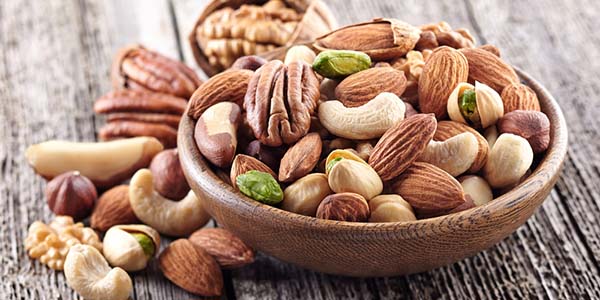
WHICH ONE TO CHOOSE
Dried fruit you can choose according to your tastes and personal predispositions or it is possible to prefer one variant over another based on its properties and nutritional characteristics most needed.
It is possible for example choose walnuts as they are rich in alpha-linolenic acid or Omega 3 or almonds because they are an excellent source of calcium, magnesium and phosphorus or pistachios which contain mineral salts (including iron) and vitamins, especially of the B and E groups
Read also: DRIED FRUITS: THE 6 MOST NUTRIENT VARIATIONS
In addition to a choice of taste, therefore, you can also do your health a favor by taking dried fruit in moderate quantities every day, preferably varying.
It was also seen that the consumption of some types of dried fruit it is particularly suitable in case of certain pathologies or particular conditions: those with high cholesterol, for example, should include walnuts, hazelnuts and almonds more often in their diet; in case of diabetes recommended cashews, almonds and pine nuts. Even particular conditions such as pregnancy can benefit from the consumption of dried fruit especially those variants richer in folic acid such as peanuts and hazelnuts but also walnuts and almonds. Among other things, eating peanuts and other nuts while pregnant has been shown to reduce the risk of allergies in children.
Read also: DRIED FRUITS: WHICH TO CHOOSE TO RELIEVE THE MOST COMMON DISORDERS
Who does sport then he will find in these small foods rich in nutrients great allies for his physical strength and energy. In fact, dried fruit is rich in mineral salts but also in carbohydrates, proteins and fibers. Excellent in particular because provides energy, keeping the sense of hunger.
E do you regularly consume dried fruit? Which type do you prefer?




